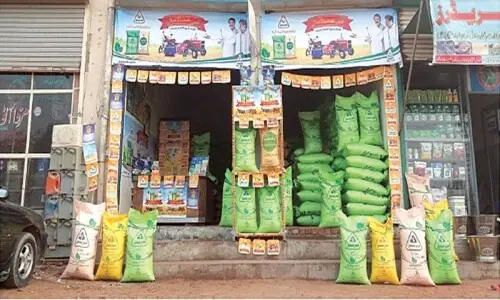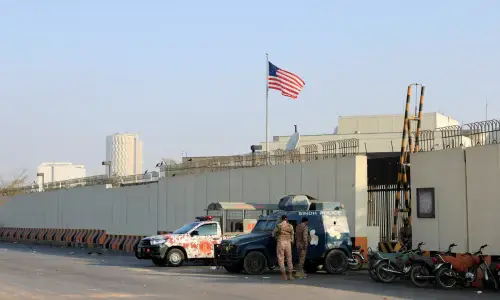The Pakistan Bureau of Statistics (PBS) released data on Saturday indicating that inflation, as measured by the Consumer Price Index (CPI), reached an all-time high of 35.37 per cent year-on-year (YoY) in March.
This marks the highest CPI increase on record since July 1965, according to the investment firm Arif Habib Corporation.
In March 2022, inflation was recorded at 12.72pc.
According to data released by the PBS, prices in urban and rural areas increased 32.97pc and 38.88pc year-on-year, respectively.
The short-term rate of inflation measured by the Sensitive Price Indicator (SPI) last week hit a record 46.65pc, while monthly inflation recorded by the CPI reached 31.6pc in February — the highest in six decades.
Consumer prices have risen sharply over the past several months, with annual inflation staying above 20pc since June last year.
Index-wise increase in inflation YoY:
- Transport: 54.94pc
- Alcoholic beverages and tobacco: 47.15pc
- Recreation and culture: 50.59pc
- Perishable food items: 51.81pc
- Non-perishable food items: 46.44pc
- Restaurants and hotels: 38.49pc
- Furnishing and household equipment maintenance: 38.99pc
- Miscellaneous goods and services: 34.43pc
- Health: 18.46pc
- Clothing and footwear: 21.93pc
- Housing and utilities: 17.49pc
- Education: 7.18pc
- Communication: 6.64pc
The finance ministry, in its Monthly Economic Update & Outlook, on Friday forecast inflation to rise further due to a second-round effect of policy decisions made earlier to raise energy and fuel prices, the central bank’s policy rate, and the rupee’s depreciation to secure IMF funding.
The Economic Adviser’s Wing of the finance ministry also conceded ineffective policy measures and the haplessness of the authorities in containing the inflationary spiral.
“Despite SBP’s contractionary monetary policy, the inflationary expectations are not settling down,” it said and also tried to attribute the challenge to Ramazan-oriented demand pressures.
It warned that bulk buying during Ramazan might cause a demand-supply gap and result in escalation of essential items prices, although the government was alert to the situation and had already taken on board all provincial governments to ensure a smooth supply of essential items.




























